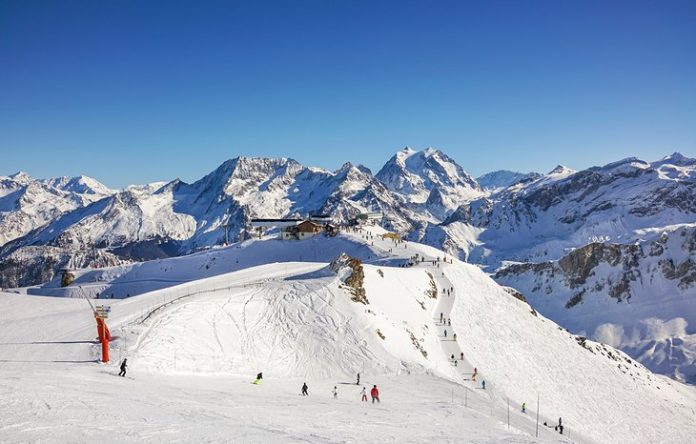Ski resorts around the world face an “existential threat” from the climate crisis, warned the international ski federation, which has teamed up with UN weather experts to tackle the growing impact of global warming on winter sports.
Last season, 26 World Cup races were cancelled due to bad weather conditions, the International Ski and Snowboard Federation (FIS) said, raising alarms about the future of winter sports. The organisation is currently working with the World Meteorological Organisation (WMO) to try to find solutions. FIS president Johan Eliasch said:
“Climate change is, simply put, an existential threat to skiing and snowboarding. The climate crisis is obviously far bigger than FIS − or sports, for that matter: it is a genuine crossroads for mankind. We would be remiss if we did not pursue every possible effort that is rooted in science and objective analysis. This is what we are trying to follow and what is at the core of this promising partnership with the WMO.”
The co-operation comes against a backdrop of ski resorts increasingly facing irregular snowfall and warmer winters, with many relying on artificial snow to keep their slopes open.
Rising temperatures are forcing snow levels higher, shortening ski seasons and leaving some resorts struggling to maintain their slopes. WMO chief Celeste Saulo said:
“This is about more than just disrupted vacations; the long-term impacts on mountain ecosystems and economies will be profound.”
This is the first time the WMO has co-operated with an international sports federation.
The federation will hold a global event next month bringing together national ski associations, venue managers and event organisers to discuss strategies for adapting to rapidly changing conditions.
Winter sports and tourism face “a bleak future”
Earlier, in its statement on the cancellation of the events, the ski organisation said:
“Winter sports and tourism face a bleak future due to climate change.”
Switzerland is already facing significant impacts, with Alpine glaciers losing around 60 per cent of their volume since 1850.
By 2019, some 200 countries had ratified the 2015 Paris Agreement, which commits to reducing greenhouse gas emissions to curb the Earth’s temperature rise. Over the next three years, however, the emissions situation has only worsened. The aggravation of the global situation and the energy crisis forced many countries to abandon their commitments. According to the UN report, only 26 out of 193 countries fulfilled the promised plans. And this list does not include the US, China, which accounts for the largest amount of CO2 emissions.
Sport also often faces challenges from natural disasters. Fires in Australia in 2020 led to the postponement of Australian Open qualifying matches and health problems for tennis players. For example, Bosnian Dalila Jakupović left the tournament due to a coughing fit.
In November 2019 at the Rugby World Cup in Japan, several group round matches were cancelled due to a typhoon, one of which was supposed to see the principal rivals England and France meet. The date of the Africa Cup of Nations was moved from June 2023 to January 2024 due to flooding in Côte d’Ivoire. And the cancellation of NBA and NHL games due to climate disasters is an annual occurrence.
